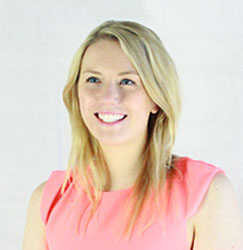Decision fatigue and wealth creation
Rhiannon Kanoniuk | 1st May 2020
Decision fatigue and wealth creation
Over the last two months as we have attempted to navigate this storm that is Covid-19, it has become especially apparent the value of having a trusted partner/adviser in the area of overall financial management. Given the amount of noise and sheer number of changes, it has been an information overload and there is a real risk now that the wrong decision – or no active decision – can have a lasting affect on your financial trajectory.
It made me think of a blog post written a number of years ago now about Decision fatigue, which I have reposted below with some tweaks given what we are currently facing.
“Which brand of Olive Oil should I buy out of the 15 types on the shelf”
“Should I buy organic carrots at $7 or non-organic at $4”
“What will I have for lunch today”
“The market is down/up/sideways, what should I do”
“Should I pay off my mortgage or put money into super”
A couple of years ago I read an interesting book which spoke about the concept of decision fatigue, and how the brain gets tired after making a series of decisions. Decisions use the same willpower that you use to say no to things like cupcakes and other temptations, and by making decisions you are incrementally using up your mental energy for the day. The more tired this ability is, the more risk of making a poor decision. What was interesting is that the brain can’t distinguish between important/non-important decisions. For example, choosing which carrots to purchase can use the same energy as what you should do with your finances.
Given the plethora of choices we are all faced with on a day to day basis (albeit a few less choices right now), it got me thinking about a phenomenon I see with clients all too often when it comes to matters related to their money – too much choice, therefore I do nothing.
As an example, a group of Stanford researchers created a sampling booth within a supermarket, with one afternoon having 24 jams, the following week 6 jams. They found that more people liked the idea of having a lot of choices, more customers approached the 24 Jam booth than the 6 jam one. However, those visiting the 24 jam booth tried 1-2 Jams, and only 3% purchased. Those at the 6 jam booth also tried 1-2 jams, and 30% of people purchased. From this, researchers concluded that those with copious choice shut down and did nothing, and called this choice overload.
So when I speak to clients who have at least started the process of making decisions about their money, from budgeting to investing to debt management to insurance etc, there is sometimes fatigue with the array of choices and information, and also the fear of then making the wrong decision which stops them from taking action.
So how can this be combatted? In terms of the book, which was talking about productivity, reducing the amount of inconsequential choices you make in your life can preserve this mental energy. I.e. I am going to do a work item at this set time everyday.
Outsourcing to someone else to navigate the choice and either present you with a final decision or a narrow set of decisions can also assist. For example, many people I know who are juggling the working/schooling will being in isolation have turned to prepared meal delivery. This takes a whole raft of decision making elements out of the equation so you can focus on what is really important right now. And if you are in a position where you still have this choice in discretionary spend – keeps the often small business alive during this economic hibernation.
We as financial planners should be your outsourced decision making, in that you tell us what you want to achieve, we come back after navigating all of the choices for you to recommend what we think is the best decision for you to achieve this outcome. You can then spend your mental energy elsewhere!
Rhiannon is the co-founder and leads the strategy & compliance board of Pekada. She is a qualified financial planner based in Melbourne with 14 years of experience. Rhiannon is passionate about helping everyday people benefit from the opportunities which come from a great financial plan. She has been featured as an expert in the Australian Financial Review, Super Guide and Professional Planner.

